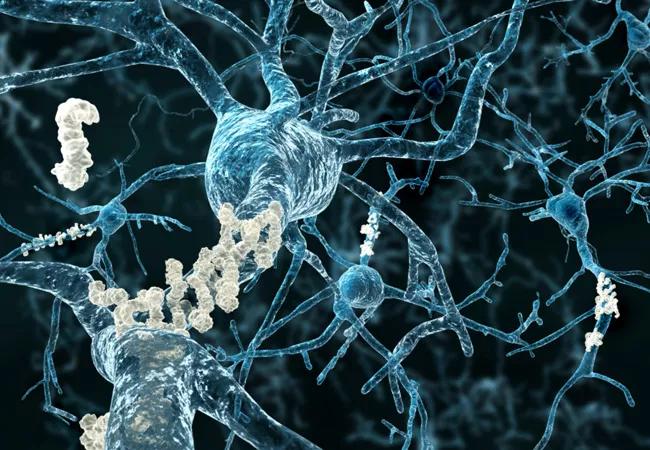$2 million will enable preclinical dose and efficacy testing of “compound 3”

Pathbreaking Cleveland Clinic research into potential cognitive benefits of an alpha-1 adrenergic agonist in Alzheimer’s disease will continue with a new five-year, $2 million grant from the National Institute on Aging (NIA).
Advertisement
Cleveland Clinic is a non-profit academic medical center. Advertising on our site helps support our mission. We do not endorse non-Cleveland Clinic products or services. Policy
The work is focused on a novel compound, dubbed “compound 3” and patented by Cleveland Clinic, that has shown promising results in preclinical models of Alzheimer’s disease. The NIA support will allow the research team to further refine compound 3 and perform more preclinical dose and efficacy testing.
“We want to enhance some of compound 3’s chemical properties to increase its penetrance of the blood-brain barrier,” explains lead researcher Dianne Perez, PhD, a staff scientist in the Department of Cardiovascular & Metabolic Sciences in Cleveland Clinic’s Lerner Research Institute. “We also want to test the drug’s effectiveness, including at difference doses, in a more varied model of Alzheimer’s disease.”
The notoriously heterogeneous pathology of Alzheimer’s disease is a key reason why effective treatments have remained elusive. To date, Dr. Perez’s preclinical studies have made use of amyloid-based models. While plaques of beta-amyloid proteins are a hallmark of the Alzheimer’s brain, other important brain changes observed in patients should be reflected in preclinical models, she believes. She says that using different disease models will broaden how her group’s findings can be interpreted.
Dr. Perez’s development of compound 3 as a potential treatment for Alzheimer’s is an unexpected result of her three decades of research pursuing a therapeutic for cardiac ischemia. That work focused on understanding the structure and function of G-protein-coupled receptors — specifically alpha-1 adrenergic receptors, which bind to the neurotransmitter norepinephrine and the neurohormone epinephrine. In view of epinephrine’s vasoconstrictive effects, Dr. Perez set out to develop compound that could imitate and amplify norepinephrine/epinephrine receptor binding.
Advertisement
She discovered that overexpression of the alpha-1 adrenergic receptor had profound cardio- and neuroprotective effects. Preclinical studies showed that animals with increased receptors of this type had reduced risk of ischemia and cancer, lived 10% to 15% longer and — notably — showed signs of improved cognition. They exhibited enhanced learning and memory, as well as increased neurogenesis and synaptic plasticity.
“This is where we saw a real potential for an alpha-1 adrenergic agonist as a potential Alzheimer’s treatment,” Dr. Perez says. “But the problem was that alpha-1 adrenergic agonists have harmful effects on blood pressure, so we needed to find a way to maintain the cognitive benefits without inadvertently raising blood pressure.”
The solution, her team found, was to design compound 3 to be an agonist-like compound. Compound 3 still binds norepinephrine and epinephrine to alpha-1 adrenergic receptors, but at a different site than normal.
This chemical sleight of hand has yielded positive results so far. In Dr. Perez’s most recent preclinical study, supported by the BrightFocus Foundation and the Alzheimer’s Drug Discovery Foundation/Harrington Discovery Institute Scholar Award, she and her team found that compound 3 significantly increased long-term potentiation — an indicator of how strong the brain’s neuronal synapses in memory formation are — and cognitive behavior in models of Alzheimer’s disease without blood pressure changes.
“This phase of drug development can be difficult and expensive, and projects with early momentum often stall without external support,” Dr. Perez says. “So we are very excited to continue our work with this support from the NIA. More research will be necessary, but we are eager at this phase to optimize compound 3 to the best of our ability.”
Advertisement
Future studies to refine compound 3’s properties will be conducted in collaboration with Shaun Stauffer, PhD, Director of Cleveland Clinic’s Center for Therapeutics Discovery, who will contribute expertise in medicinal chemistry to help with drug optimization.
Advertisement
Advertisement

First full characterization of kidney microbiome unlocks potential to prevent kidney stones

Researchers identify potential path to retaining chemo sensitivity

Large-scale joint study links elevated TMAO blood levels and chronic kidney disease risk over time

Investigators are developing a deep learning model to predict health outcomes in ICUs.

Preclinical work promises large-scale data with minimal bias to inform development of clinical tests

Cleveland Clinic researchers pursue answers on basic science and clinical fronts

Study suggests sex-specific pathways show potential for sex-specific therapeutic approaches

Cleveland Clinic launches Quantum Innovation Catalyzer Program to help start-up companies access advanced research technology